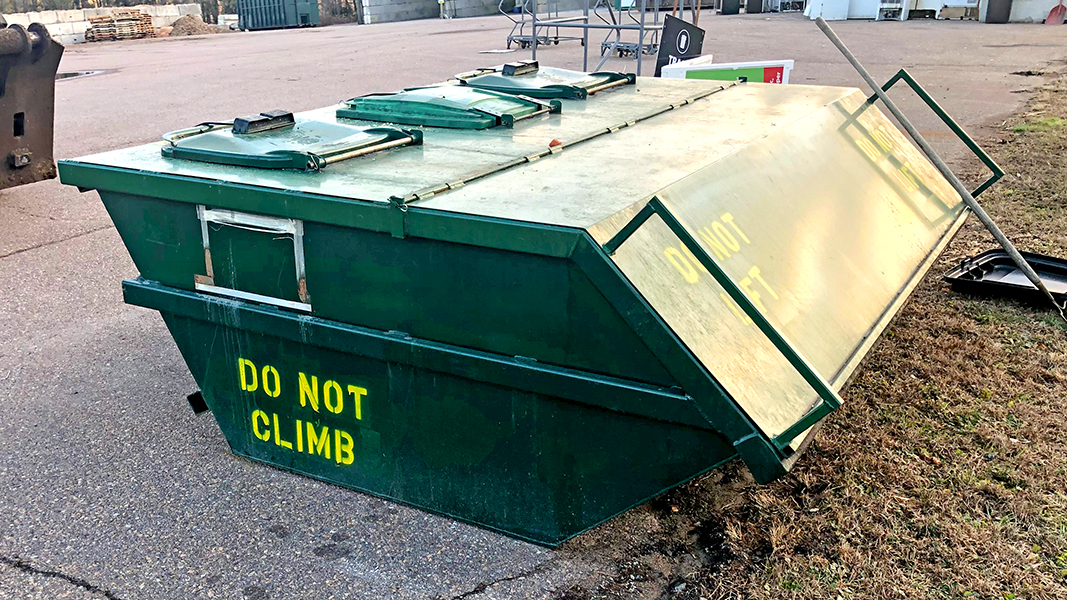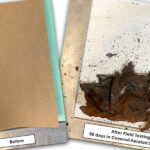Top: Six cubic yard dumpster with garbage can lids on top. Photo courtesy of SAS Forks
So much of the equipment used to recycle organics has its origins in other industrial sectors, including aggregates (mining and gravel), agriculture and salvage. A more recent introduction comes from SAS Forks in Luxemburg, Wisconsin, which manufacturers wheel loader dumpsters originally designed for auto salvage operations. Mark Kirsten, SAS Forks’ sales manager, was encouraged by several solid waste recycling facilities in Vermont to reach out to BioCycle about use of its dumpster for food scraps collection. “While our primary customers are salvage yards that use the dumpsters for sorting different materials, other industry sectors have found different uses for our equipment,” says Kirsten.
The units installed in Vermont were custom-designed to collect food scraps dropped off by households and other small-scale generators who must comply with the state’s food scraps disposal ban. The 6-cubic yard dumpster includes a lid welded on to the unit; three holes in the metal lid accommodate garbage can lids to lift off and drop in the food scraps. It is tightly sealed to prevent leakage. The front-end loader has a plate that attaches directly to the side of the dumpster to lift and empty it. Bars are attached to the lid (see photo) to prevent it from crushing the can lids when the dumpster is tipped. “The quick-attach plate on the loader locks hydraulically onto whatever is being used at the moment, whether it is a loader bucket, a snowplow or the dumpster,” explains Kirsten. “It is controlled from the cab on the loader, which is a significant worker safety benefit.” He adds that the customized food scraps dumpster in use in Vermont costs around $10,000, including the lids and the holes.













